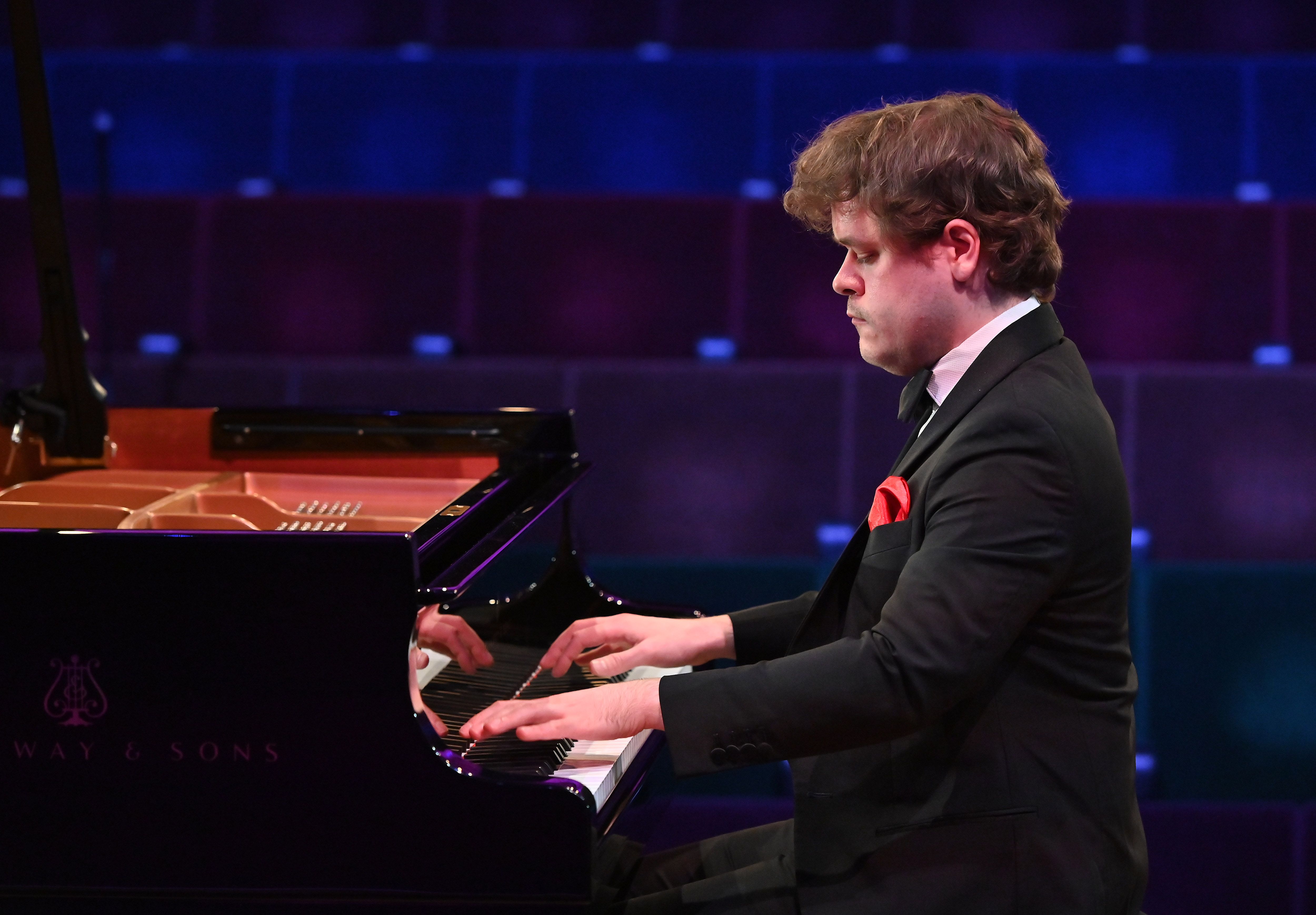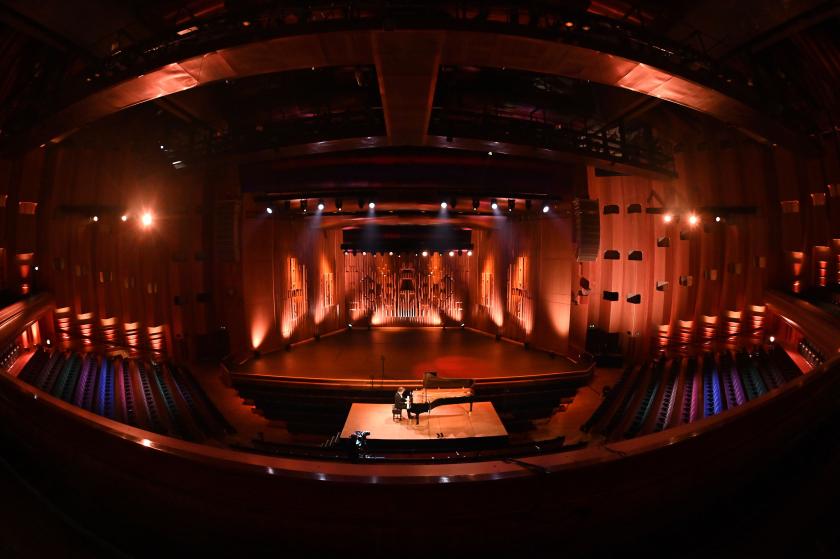I can’t deny that it’s great to be able to experience a recital by Benjamin Grosvenor live from the Barbican despite lockdown, streamed into your own home. The filming of this performance on Saturday night was superb, clear and well paced; we could see his hands up close, from a good variety of angles, and they are well worth seeing; and the coloured lighting was coordinated nicely with the music, for instance sea-turquoise for Ravel’s “Ondine”. Nonetheless, a certain heartbreak remains upon seeing the pianist adrift on a small platform constructed in the middle of the empty stalls, like a life-raft on an ocean of vacant chairs.
For his “Live from the Barbican” recital, Grosvenor chose a programme that was short, but meaty. He opened with an ideal musical prayer: Liszt’s transcription of Schubert’s Ave Maria, in which he wove a spell of the first order, garlanding the deep-set melody with Liszt’s filigree silver-lace passagework. It calmed and focused us before the drama of Chopin’s Sonata No. 3 in B minor. To this, the pianist imparted a kaleidoscope of colours, with polyphonic lines gleaming and finely chiselled, relishing the Italianate twists of melody in the first movement, the mercurial rhythmic sleight-of-hand of the scherzo and the rapt nocturnal hush in the third. The finale could perhaps have used, at times, extra darkness to enhance the contrasting brilliance, but Grosvenor's clarity of touch always captured the way Chopin can create textural effects on the piano that no orchestra could possibly match.  A complete change of character came with the third work, Ginastera’s Three Argentinian Dances – dazzling music that’s sometimes milked for its harsh virtuosity, but in which Grosvenor found lightness, swing and song besides. Nevertheless, the high point of the programme was Ravel’s Gaspard de la Nuit: three fantastical pieces that positively ooze black magic. Here Grosvenor’s sensitivity and refulgence of tone paid dividends from start to finish. If anything, as in the Chopin sonata, one wished occasionally for greater abandonment to the mystery and horror that lurks behind these sound-pictures: the wildness of the water-nymph Ondine, the gallows and its victim at sunset, and the demoniac "Scarbo" – but perhaps that is something to look forward to at some future event when the place is packed with listeners to induce the impulse for that one extra mile. Grosvenor added an encore, Saint-Saëns’s "The Swan" in the transcription by Leopold Godowsky: the sort of golden-age gorgeousness in which Grosvenor’s reinvented golden-age pianism is utterly at home.
A complete change of character came with the third work, Ginastera’s Three Argentinian Dances – dazzling music that’s sometimes milked for its harsh virtuosity, but in which Grosvenor found lightness, swing and song besides. Nevertheless, the high point of the programme was Ravel’s Gaspard de la Nuit: three fantastical pieces that positively ooze black magic. Here Grosvenor’s sensitivity and refulgence of tone paid dividends from start to finish. If anything, as in the Chopin sonata, one wished occasionally for greater abandonment to the mystery and horror that lurks behind these sound-pictures: the wildness of the water-nymph Ondine, the gallows and its victim at sunset, and the demoniac "Scarbo" – but perhaps that is something to look forward to at some future event when the place is packed with listeners to induce the impulse for that one extra mile. Grosvenor added an encore, Saint-Saëns’s "The Swan" in the transcription by Leopold Godowsky: the sort of golden-age gorgeousness in which Grosvenor’s reinvented golden-age pianism is utterly at home.
If “vaccine passports” are what it takes to get people back into concert halls to share the music with the performers and with one another, then bring it on, the sooner the better. Grosvenor managed the situation well, and he is one of those musicians who must by now be getting used to the artificiality of it, but in general there is nothing that damages the essence of music-making, which is communication, quite like the palpable absence of anyone to communicate with.













Add comment